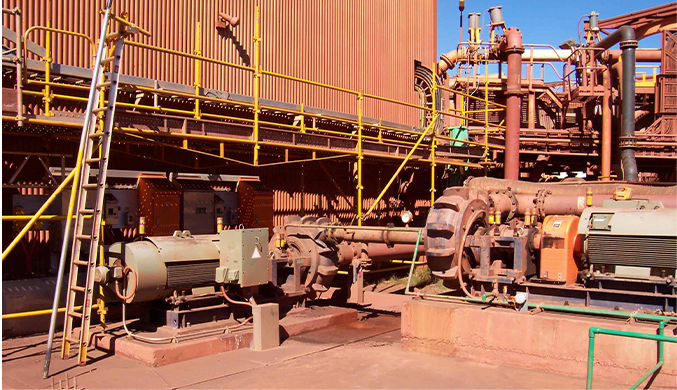Kannada
- Afrikaans
- Albanian
- Amharic
- Arabic
- Armenian
- Azerbaijani
- Basque
- Belarusian
- Bengali
- Bosnian
- Bulgarian
- Catalan
- Cebuano
- Corsican
- Croatian
- Czech
- Danish
- Dutch
- English
- Esperanto
- Estonian
- Finnish
- French
- Frisian
- Galician
- Georgian
- German
- Greek
- Gujarati
- Haitian Creole
- hausa
- hawaiian
- Hebrew
- Hindi
- Miao
- Hungarian
- Icelandic
- igbo
- Indonesian
- irish
- Italian
- Japanese
- Javanese
- Kannada
- kazakh
- Khmer
- Rwandese
- Korean
- Kurdish
- Kyrgyz
- Lao
- Latin
- Latvian
- Lithuanian
- Luxembourgish
- Macedonian
- Malgashi
- Malay
- Malayalam
- Maltese
- Maori
- Marathi
- Mongolian
- Myanmar
- Nepali
- Norwegian
- Norwegian
- Occitan
- Pashto
- Persian
- Polish
- Portuguese
- Punjabi
- Romanian
- Russian
- Samoan
- Scottish Gaelic
- Serbian
- Sesotho
- Shona
- Sindhi
- Sinhala
- Slovak
- Slovenian
- Somali
- Spanish
- Sundanese
- Swahili
- Swedish
- Tagalog
- Tajik
- Tamil
- Tatar
- Telugu
- Thai
- Turkish
- Turkmen
- Ukrainian
- Urdu
- Uighur
- Uzbek
- Vietnamese
- Welsh
- Bantu
- Yiddish
- Yoruba
- Zulu
Telephone: +86 13120555503
Email: frank@cypump.com
ನವೆಂ . 12, 2024 10:22 Back to list
sewage pump system
The Importance of Sewage Pump Systems in Modern Infrastructure
Sewage pump systems play a crucial role in modern infrastructure, managing wastewater efficiently to protect public health and the environment. These systems are designed to transport sewage and waste from lower to higher elevation points, ensuring that wastewater reaches treatment facilities without causing contamination or health hazards. This article explores the components, types, and significance of sewage pump systems in urban planning and environmental management.
Components of Sewage Pump Systems
At their core, sewage pump systems consist of several essential components, each fulfilling a specific function. The primary element is the pump itself, which is responsible for moving sewage through the piping system. These pumps can be submersible, meaning they operate underwater, or non-submersible, where they are located above the wastewater level.
Another vital component is the sewage basin or tank, which collects the incoming wastewater before pumping. This tank helps to buffer peak flow rates and provides a sedimentation area where solids can settle. Additionally, a control panel manages the pump's operation, including starting, stopping, and monitoring performance.
Pipes and fittings form the conveyance network that transports sewage from homes or businesses to the treatment facility. Adequate slope and diameter are crucial to ensure reliable flow and prevent blockages. Sealing and venting systems must also be in place to manage odors and maintain pressure within the system.
Types of Sewage Pump Systems
Sewage pump systems can be broadly classified into different types based on their application
. These include1. Grinder Pumps These pumps use sharp blades to shred solid waste into smaller particles, making it easier to transport through smaller pipes. They are particularly useful in areas where gravity flow is not achievable, such as in low-lying regions.
sewage pump system

2. Effluent Pumps Designed for pumping waste that contains fewer solids, effluent pumps are typically used in systems where wastewater has already been pre-treated. They are more efficient than standard sewage pumps and are ideal for applications like septic systems.
3. Sewage Ejector Pumps These are used to lift sewage from a lower elevation (like a basement) to the municipal sewer line. Ejector pumps are commonly found in residential homes with lower bathrooms or laundry facilities.
4. Submersible Pumps As previously mentioned, these pumps operate underwater, submerged in the wastewater. They are often used in sewage basins and offer efficiency and reliability due to their ability to handle large volumes of wastewater.
Significance in Urban Infrastructure
The implementation of sewage pump systems is vital for maintaining public health standards and environmental integrity. They prevent the overflow and backup of sewage in residential and commercial areas, which can lead to serious health hazards, including waterborne diseases.
Moreover, efficient sewage management supports sustainable urban growth. As cities expand, the demand for reliable wastewater systems increases. Well-designed sewage pump systems ensure that infrastructure can meet these demands without compromising service quality or safety.
In environmental management, sewage pump systems help to minimize the impact of urban runoff on natural water bodies. By efficiently transporting wastewater to treatment facilities, these systems contribute to the protection of ecosystems and natural resources. They also promote water conservation by allowing for the reuse of treated wastewater for irrigation and other non-potable uses.
Conclusion
In conclusion, sewage pump systems are a foundational element of modern infrastructure, ensuring the safe and efficient transport of wastewater. With various types tailored to specific needs and applications, these systems are not only critical for public health but also for the sustainability of urban environments. As cities continue to grow, the importance of effective sewage management will only increase, highlighting the need for ongoing innovation and investment in this essential infrastructure. By understanding and enhancing sewage pump systems, communities can build resilient infrastructures that safeguard public health and protect the environment for future generations.
-
ISG Series Pipeline Pump - Chi Yuan Pumps | Energy Efficiency&Compact Design
NewsAug.03,2025
-
ISG Series Vertical Pipeline Pump - Chi Yuan Pumps Co., LTD.|High Efficiency, Low Noise, Durable
NewsAug.02,2025
-
ISG Series Vertical Pipeline Pump - Chi Yuan Pumps | High Efficiency, Low Noise
NewsAug.02,2025
-
ISG Series Vertical Pipeline Pump- Chi Yuan Pumps Co., LTD.|High Efficiency&Compact Design
NewsAug.02,2025
-
Heavy-Duty Mining Sludge Pumps - Wear-Resistant Slurry Handling
NewsAug.02,2025
-
Horizontal Split Case Pump with GPT-4 Turbo | High Efficiency
NewsAug.01,2025










